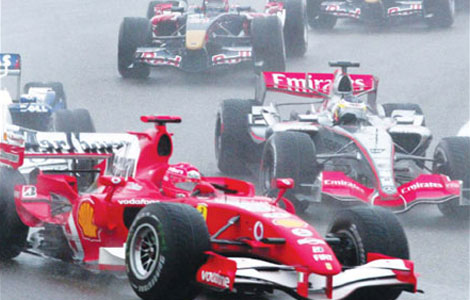Society
Older brains less nimble at multi-tasking - study
Updated: 2011-04-12 11:09
(Agencies)
LOS ANGELES -- The elderly have a harder time multi-tasking than young adults because they are far less nimble at switching neurological connections in their brains between activities, according to research released on Monday.
The findings by neuroscientists from the University of California at San Francisco (UCSF) provides new insights to earlier studies that showed the ability to move from one task to another in quick succession became more difficult with age.
Previous studies and accounts of "senior moments" -- fleeting bouts of forgetfulness -- have established a strong link between juggling tasks and glitches in short-term, or "working," memory, for people of all ages.
Scientists define working memory as the capacity to hold and manipulate information in one's mind for brief intervals, a function vital to all mental operations, from following a conversation to more complex tasks like learning or reasoning.
His research measured brain activity during controlled multi-tasking experiments, comparing the performance of men and women whose average age was 24 with a second group who averaged 69 years of age.
The study was published in the online edition of the journal Proceedings of the National Academy of Sciences.
Neural circuitry and networks were monitored through magnetic resonance imaging, or MRI, scans as test subjects were asked to contemplate outdoor photos for short periods, then were presented with the picture of a face and asked to determine its gender and age, before being asked to recall details from the original scene.
Researchers found the brains of older subjects were less capable of disengaging from the interruption and reestablishing the neural connections necessary to switch back to focusing on the original memory.
Some experts had speculated older people become more deeply engaged in what interrupts them, making it harder for them to shift their focus back to the original task at hand.
But Gazzaley, head of the UCSF Neuroscience Imaging Center, said his study showed young adults and elderly were paying the same level of attention to the interfering image of the face.
"It's that reengagement of original memory network and disengagement from what has interrupted you, that switch-over seems to be worse in older adults," Gazzaley said. What causes that deficit remains to be determined, he added.
E-paper

Green light
F1 sponsors expect lucrative returns from Shanghai pit stop
Buying into the romance
Born to fly
Light of hope
Specials

Share your China stories!
Foreign readers are invited to share your China stories.

No more Mr. Bad Guy
Italian actor plans to smash ‘foreign devil’ myth and become the first white kungfu star made in China.

Art auctions
China accounted for 33% of global fine art sales.




